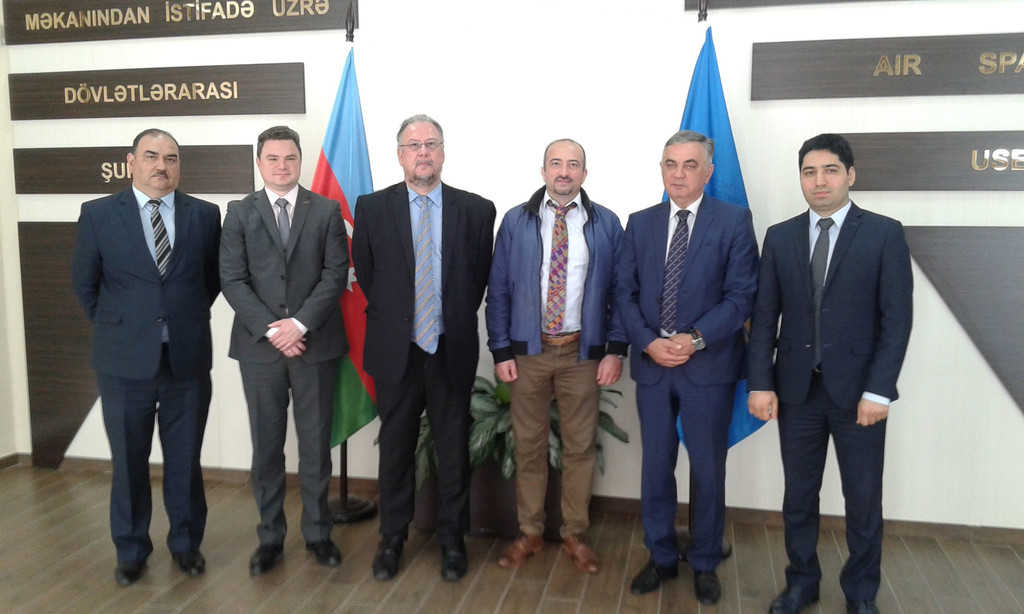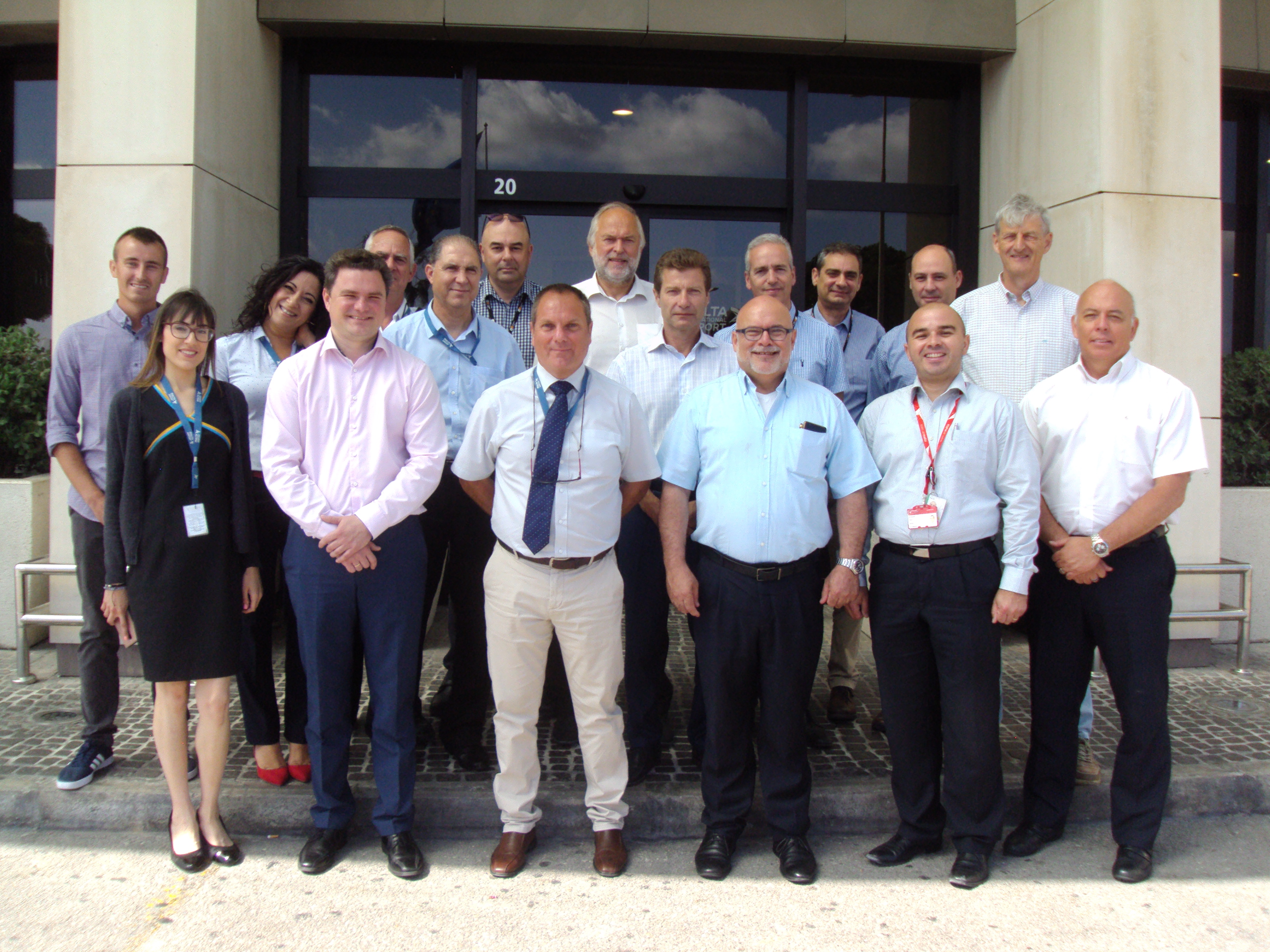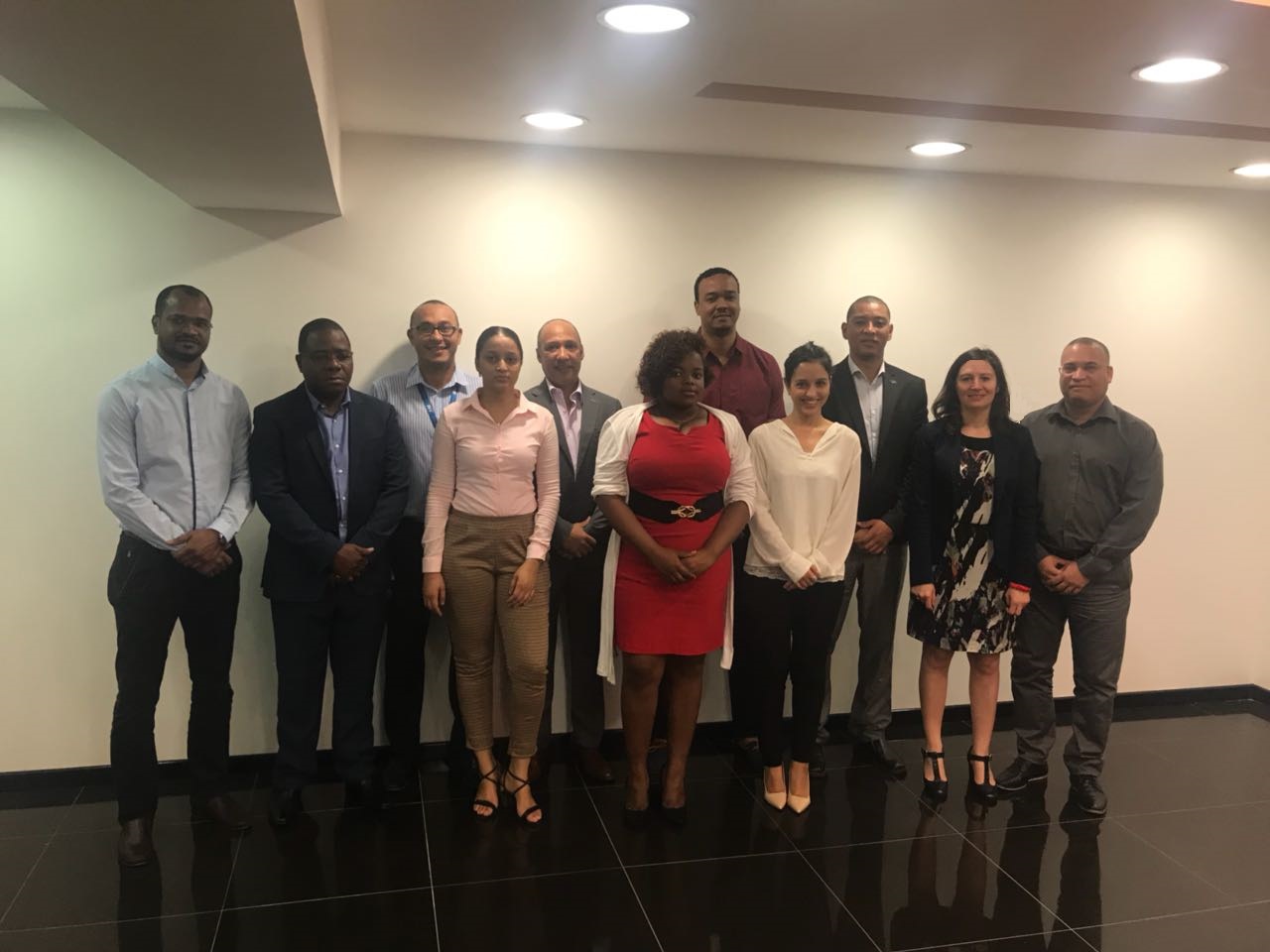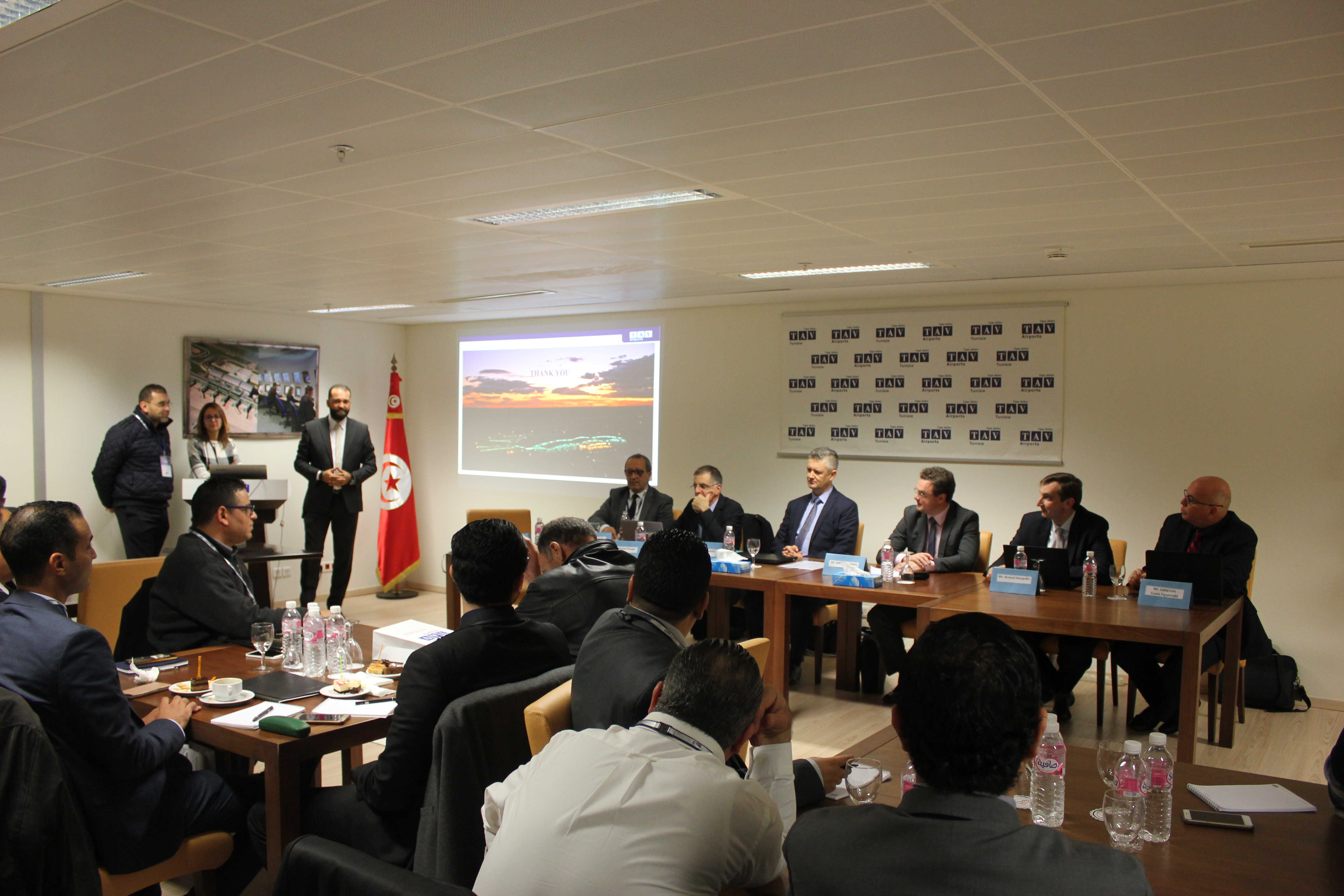To help navigate these changing times and ensure that parts of society are not left behind by the fast pace of technological development, in 2015, the world’s governments, through the United Nations, agreed on the 2030 Agenda for Sustainable Development. This Agenda is framed by 17 overarching Sustainable Development Goals (SDGs), which aim to set priorities and stimulate action over the next fifteen years in areas of critical importance.

 Sarantis Poulimenakos has an Air Traffic Management background with more than 25 years of operational experience at national and international level. In 2005 he joined as Counselor of the Embassy/MFA, the Permanent Representation of
Sarantis Poulimenakos has an Air Traffic Management background with more than 25 years of operational experience at national and international level. In 2005 he joined as Counselor of the Embassy/MFA, the Permanent Representation ofGR to the EU in Brussels and was member of the Provisional Council of EUROCONTROL as well as Safety Commissioner/Safety Regulatory Committee. He joined ICAO in 2010 serving as Head of Project Development Unit in the Technical Cooperation Bureau at ICAO Headquarters, responsible for the development of technical cooperation and assistance projects for the 191 Member States of the Organization. Since 2015, he works for the ICAO EUR/NAT RO, where among other duties he is also the Programme Manager for the EUR/NAT Technical Assistance Programme.
ICAO’s five Strategic Objectives are strongly linked to 15 of the 17 United Nations Sustainable Development Goals (SDGs). ICAO is fully committed to work in close cooperation with States and other UN Bodies to support related targets, enhancing the efficacy of the UN systems’ efforts towards the achievement of the 2030 SDGs whilst highlighting the unique and crucial contributions of the aviation sector.
The ICAO No Country Left Behind (NCLB) initiative was officially launched during the celebrations of ICAO’s 70th Anniversary, on 7 December 2014. Consequently the ICAO European and North Atlantic (EUR/NAT) Office initiated an analysis concerning the potential modus operandi of the NCLB strategy within our Regions. At that point in time, there were four Significant Safety Concerns (SSC) within the EUR/NAT Regions and at least ten States with an Effective Implementation (EI) level below the global average.
Based on the experience from ongoing activities at that time, the safety status within our Regions and the limited resources available, a project management approach for the ongoing and new activities was identified as the optimum way to do more with less. Accordingly, the EUR/NAT Technical Assistance Programme (EUR/NAT TAP) was established in 2015 to be implemented through a number of Technical Assistance projects, according to the availability of funds and human resources.
The EUR/NAT TAP has become an integrated component of the EUR/ NAT work programme. The EUR/ NAT personnel involved in the implementation of the EUR/NAT TAP received additional training on project management principles and procedures.
The EUR/NAT TAP is supporting the UN SDGs and all ICAO Strategic Objectives. The Programme is aligned with the ICAO Business Plan 2017 – 2019, the EUR/NAT Operational Plan, ICAO Global Plans, as required e.g. Global Air Navigation Plan (GANP), Global Aviation Safety Plan (GASP), and was endorsed by the 2017 Meeting of the Directors General of Civil Aviation of the ICAO European and North Atlantic Regions (EUR/NAT-DGCA/2017) held on 5 May 2017 in Paris.
The main objective of the EUR/NAT TAP is to provide enhanced support for States in the effective implementation of ICAO’s policies, plans and SARPs, and in particular, the resolution of Significant Safety
Concerns (SSCs), Significant Security Concerns (SSeCs) and other deficiencies. The programme is providing support in a coordinated and prioritised manner. Partnerships and resource mobilization from the Region are important and also integrated parts of this Programme.
The following is a comprehensive list of all of the EUR/NAT TAP projects that have been implemented since 2015:
EUR/NAT AZE 16001: Status of implementation – Ongoing
This Technical Assistance project is supporting the State Civil Aviation Administration of the Republic of Azerbaijan (SCAA), to improve the overall level of EI. Implementation includes the coordination of post Corrective Action Plan (CAP) activities and carrying out dedicated capacity building activities by qualified technical staff, with the objective to achieve EI above 60% in the reference period (2016 – 2018). This project was supported by in-kind donations from Austria, Turkey, Israel and Ukraine. At the end of the first phase of the project, an ICAO Coordinated Validation Mission (ICVM) was conducted in Azerbaijan from 2 to 11 July 2018, resulting in an updated overall EI of 66.33 %, well above the targeted outcome. The project is expected to continue during 2019, according to the agreed Tailored Plan of Action (TPA).

EUR/NAT RWY Safety 16003 (extended 2018-2019). Status of implementation – Ongoing
This Technical Assistance project has so far supported six EUR States (Turkey, Israel, Montenegro, Kyrgyzstan, Tunisia and Malta) in the establishment and improvement of their State Runway Safety programmes and local Runway Safety Teams (RSTs). The project is supported by in-kind donations (release of experts) by the Russian Federation, United States, EUROCONTROL, CANSO Europe, ACI Europe and IFALPA.

EUR/NAT KGZ 16004 Status of implementation – Ongoing
This Technical Assistance project is implemented in three phases providing support to the CAA of the Republic of Kyrgyzstan to develop and implement their Corrective Action Plan (CAP) rectifying an SSC in the short term, and in the longer-term, to further build its safety oversight capacity ensuring its sustainable development. The project was supported at various stages by contributions from Turkey and Ukraine.
Funding was provided through the ICAO SAFE Fund enabling the recruitment of two experts to provide OJT in the PEL/OPS and AIR areas. Additional financing was provided by ICAO through the Special Implementation Projects (SIP) funds and the regular budget to allow direct assistance by ICAO experts. It also enabled recruitment of a PEL/OPS expert to be deployed in Kyrgyzstan for two months to provide further help to enhance the CAA inspectorate procedures and guidance material, continue on-the-job training (OJT) during joint surveillance activities and share experience with the CAA inspectorate staff. The project is closely coordinated with EASA, encompassing joint training activities.

EUR/NAT 18001 AGA / Aerodrome certification. Status of implementation – Ongoing
This Technical Assistance project will offer support to 23 States in the EUR Region (Algeria, Tunisia, Morocco, Monaco, Andorra, Kazakhstan, Kyrgyzstan, Tajikistan, Uzbekistan, Turkmenistan, Belarus, Ukraine, Moldova, Georgia, Armenia, Azerbaijan, Russian Federation, Albania, Montenegro, The former Yugoslav Republic of Macedonia, Bosnia and Herzegovina, Serbia, and Croatia) to build the necessary capacity in the Aerodromes and Ground Aids (AGA) area/aerodrome certification through dedicated Workshops at the sub-regional level. The Workshops will play an instrumental role in complementing the existing efforts of the EUR States to rectify the findings in the AGA/aerodrome certification area and update the relevant corrective action plans, thus enhancing their oversight capacity. At the moment three workshops have been planned: one in December 2018 in France, the second in Albania in January 2019 and the third in Ukraine in February 2019. This project is supported by contributions from France and ACI.
EUR/NAT ENV 17004 Status of implementation – Ongoing
This Technical Assistance project aims to support a State or a group of States, in the preparation and update of their Environmental Action Plan to ensure that all relevant Action Plans are coherent with the ICAO Guidance Document 9988 and the Resolution A39-2 adopted by the Assembly in October 2016. The implementation is through an Environment Officer from ICAO EUR/NAT Office and in-kind donations from Turkey and Portugal.

EUR/NAT UZB 19001 Status of implementation – Ongoing
The ICAO EUR/NAT Regional Office proposed a Tailored Plan of Action (TPA) to Uzbekistan, which was agreed and signed by the State in September 2018. The TPA specifies the activities to be undertaken by Uzbekistan in cooperation with ICAO and in the spirit of the No Country Left Behind initiative, with a view to increase the overall EI in order to achieve the EUR average of 74.91%. The TPA for the reference period (2019 – 2020) shall focus on the development of the CAP based on the remedial actions of high and other priorities as described in the ICAO Universal Safety Oversight Audit Programme (USOAP) audit report. The tools for the implementation of this TPA for Uzbekistan CAA (GOSAVIANADZOR) encompass the support from the ICAO EUR/NAT Regional Office, through the development and implementation of a Technical Assistance project and coordinated support from third parties such as States and International/Regional Organizations mostly through resource mobilization organized by the ICAO EUR/NAT Regional Office.
EUR/NAT TJK 17001 Status of implementation – Under development
This Technical Assistance project will focus on supporting the Tajikistan CAA in the coordination of updates and implementation of the CAP. The project will also assist in the strengthening of safety oversight capabilities of the Tajikistan CAA through the provision of theoretical and on-the-job training (OJT). The project’s primary objective is to achieve EI above the global average in the reference period and will be implemented by EUR/NAT Technical Team and in-kind donations which are yet to be confirmed.
EUR/NAT UKR 19002 Status of implementation – Ongoing
The ICAO EUR/NAT Regional Office proposed a TPA to Ukraine which is expected to be agreed and signed by the State before the end of 2018. This TPA specifies the activities to be undertaken by Ukraine in cooperation with ICAO and in the spirit of the No Country Left Behind initiative, with a view of increasing the overall EI to achieve the EUR average of 74.91% by 2021 with the short-term target of above 60% by 2020. The tools for the implementation of this TPA for Ukraine will include the development and implementation of a Technical Assistance project (UKR 19002).
EUR/NAT KAZ 15601 Status of implementation – Completed
A EUR/NAT Technical Assistance Project was developed in cooperation with ANB/IMP/SAF, to support Kazakhstan, through the recruitment of two international experts to provide OJT in the OPS and AIR areas. This project contributed to the resolution of two SSCs (OPS and AIR). Funds came from both the Safe Fund and in-kind donations/experts from the region namely, Portugal and Ukraine.
EUR/NAT PANS-OPS 16002 Phase 1 & 2 – Completed
Dedicated missions to support nine EUR States included in the EUR List Of Air Navigation Deficiencies due to the identified lack of a mechanism to ensure compliance with ICAO Annex 4 (Aeronautical Charts) and Doc 8168 (PANS-OPS) provisions (deficiency EUR-AIS 04).
At the end of Phase 1, five of the nine States have rectified their deficiencies and were removed from the EUR deficiencies list. The project was implemented by the EUR/NAT Technical Team with in-kind donations from Portugal. In Phase 2, sixteen PANS-OPS experts were trained in two dedicated Workshops held in Vienna and Paris in 2017. The project was implemented by the EUR/NAT Technical Team and in-kind donations from Austria and Portugal. A total of 106 PANS-OPS experts and safety oversight inspectors have been trained by this project.

EUR/NAT OJT 17002 Status of implementation – Completed
The objective of the project was to assist States, upon their request and according to the EUR/NAT resource availability, to enhance their oversight capacity, through capacity building activities and dedicated/ tailored-made OJT for national inspectors. It was implemented by the EUR/NAT Technical Team.
EUR/NAT AVSEC-KAZ 17005 Status of implementation – Completed
This Technical Assistance project provided short term support to the AVSEC sector of the CAC of the Republic of Kazakhstan by assessing the current AVSEC status and providing advisory assistance during the project duration. The project was implemented with the support of the AVSEC Officer from ICAO EUR/NAT Office and in-kind donations from Kazakhstan.
Within the area of accreditation of the EUR/NAT Regional Office, a number of regional aviation organizations are actively providing support to the States, through technical assistance/cooperation activities. EASA is one of the major Technical Assistance providers in the Region. As resources are limited, optimum use and early coordination to avoid any undue duplication of efforts within the EUR Region are instrumental to the success of any Technical Assistance Programme. For this purpose, the ICAO EUR/NAT Regional Office and EASA are regularly coordinating to optimize their support to the States.
Establishing the ICAO EUR/NAT Technical Assistance Programme (TAP) back in 2015 required a strong commitment from the Senior Management and a dedicated team.
Four years later, there is only one SSC remaining in the Region out of the original four in 2015 and the regional EI % has increased to 74.91%, which is above the world average of 65.83%. USOAP results also show that 85.71% of the States in the EUR/NAT Regions have achieved the target of 60% EI in line with the Global Aviation Safety Plan (GASP).
Despite all the challenges, the ICAO EUR/NAT Office is committed to continuing the EUR/NAT NCLB Technical Assistance Programme to match the increasing demand for support from States and to further supporting the EUR/NAT States in their activities to achieve the objectives of a safe, secure, efficient and environmentally responsible civil aviation system.
This article was originally written for the ICAO EUR/NAT Office’s Newsletter (Issue 4) from November 2018. A full list of EUR/NAT Newsletters can be found here.
